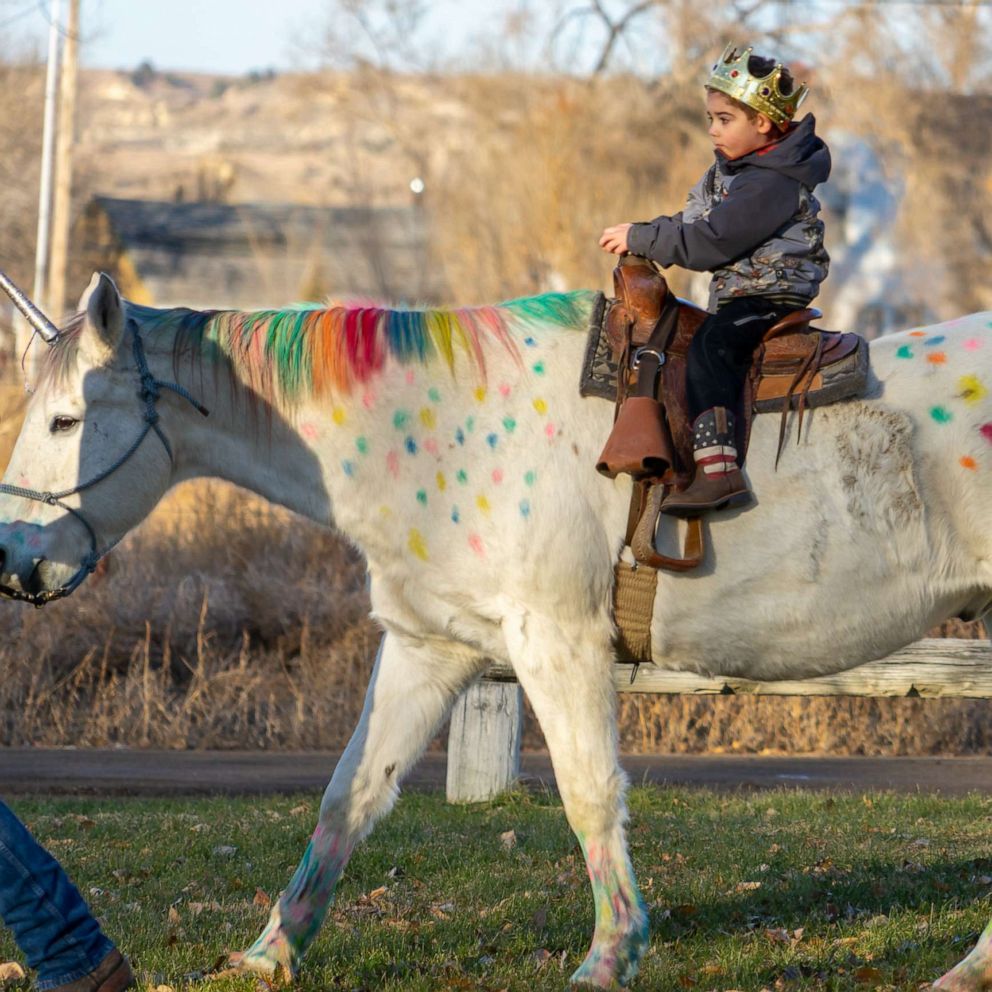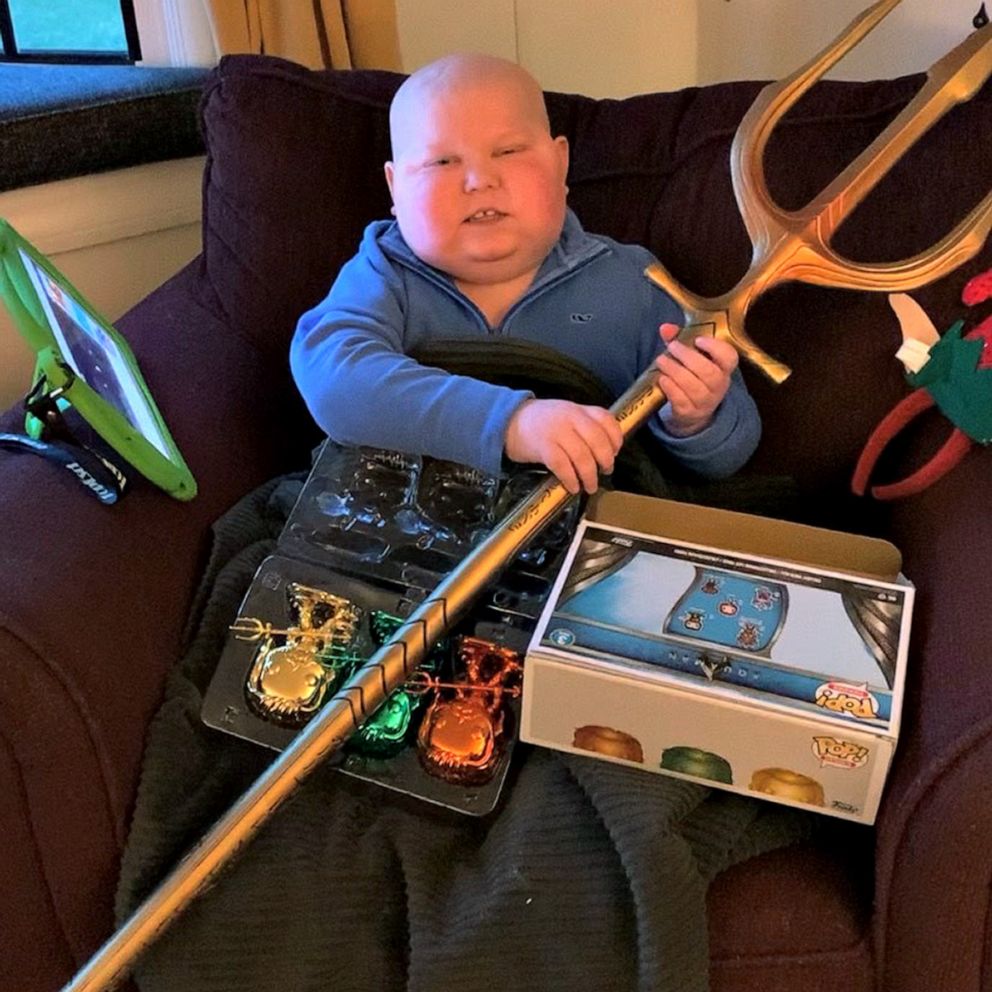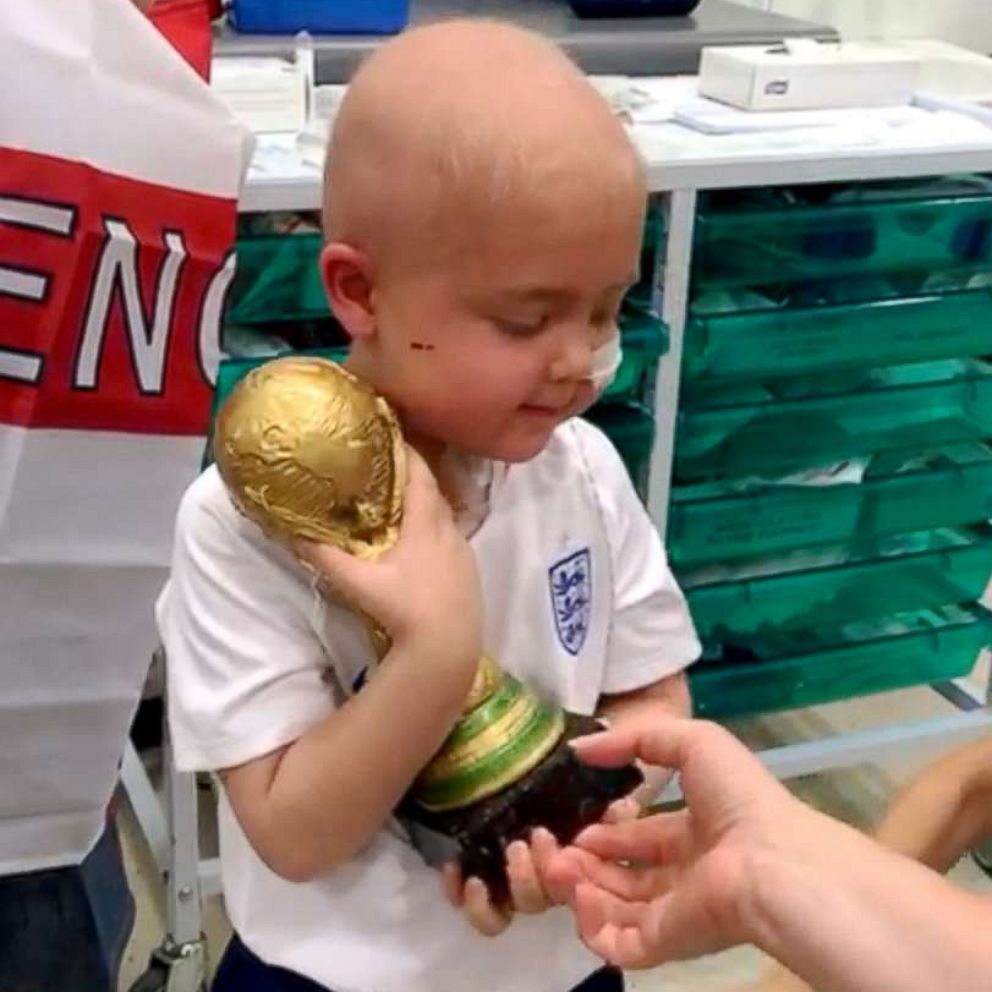Mom battling brain cancer launches bucket list challenge with support of NBA superstars
For any Boston Celtics fan, the chance to sit inside the TD Garden during an NBA finals game is a coveted opportunity.
But for Heather Walker, a return to the court feels like a particularly special homecoming -- one that she says she is certainly not taking for granted.
"It's like a dream come true," Walker, a longtime vice-president of public relations for the Celtics, told ABC News. "I just can't believe that I'm back here."
The journey back to the TD Garden has not been easy for Walker, and although she is no stranger to chaos, thanks to her many years of wrangling basketball players off the court, she now faces her most difficult challenge yet.
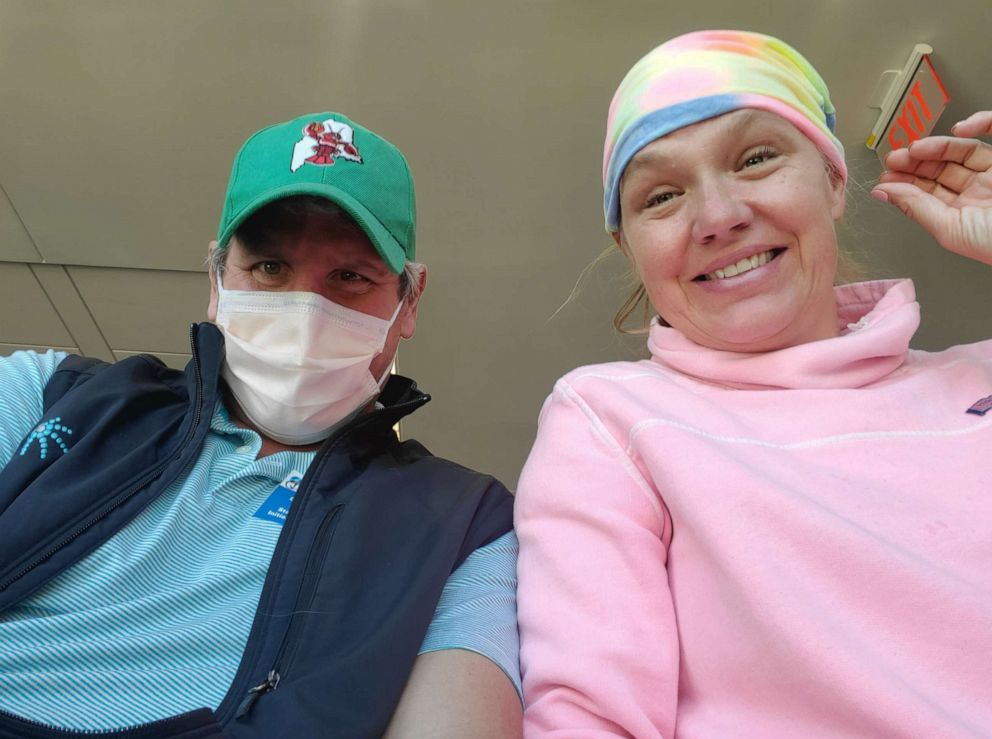
Last June, Walker began to experience headaches, which soon turned into a persistent malaise, leading the mother of two to visit a multitude of doctors. But despite numerous medical visits, her symptoms were determined to be simply the result of her busy schedule.
"I saw like four different doctors and I said, I'm just not feeling well," Walked said. "They said, 'well, just take it easy. You're just a working, stressed out mom.'"
However, just days before her 50th birthday, and with her recurring symptoms still concerning her, she decided to seek medical help once again.
A subsequent CT scan revealed a devastating diagnosis: stage four glioblastoma, a rare and aggressive form of brain cancer -- the same illness that took the lives of Arizona Sen. John McCain, Massachusetts Sen. Ted Kennedy, and former Delaware Attorney General Beau Biden, President Joe Biden's son.
"When I got the diagnosis, I couldn't believe it… it was unbelievable. It was surreal," Walker said. "I had no idea what glioblastoma was. Brain cancer? What am I doing here? I'm a vice president of the Boston Celtics, we're doing off the court, we got to get to work."
"This disease is just awful… and there's no cure," she added.
The golf ball-sized mass discovered growing in Walker's brain called for urgent and immediate action, requiring emergency and invasive surgery the very next day, followed by weeks of radiation and chemotherapy, and eventually a clinical trial treatment.
Since her diagnosis, Walker has been determined to publicly share her fight with glioblastoma in an effort to bring awareness to the disease, raising funds for much needed treatments, and seeking to galvanize scientists and public officials to find a cure for cancer.
"I feel like I was born to do this. I really feel like I was meant to be here. I'm a vice president of the Boston Celtics, but I was meant to help people cure cancer. I don't think I belong anywhere else than here," Walker said. "And even if I get cured, which, hopefully eventually I do, I'm still moving. I'm not leaving anyone behind. I'm going to keep on going and keep on going. This is what I was meant to do."
A Celtics hero
The storied legacy of the Boston Celtics is one that has been long solidified in NBA and sports history, with 17 championship banners, thanks to basketball legends like Bill Russell, Larry Bird, Bob Cousy, Satch Sanders, and Kevin Garnett.
However, top Celtics executives, players and staff argue that Walker is as much of a legend within the organization as any of the team's most well-known players on the court.
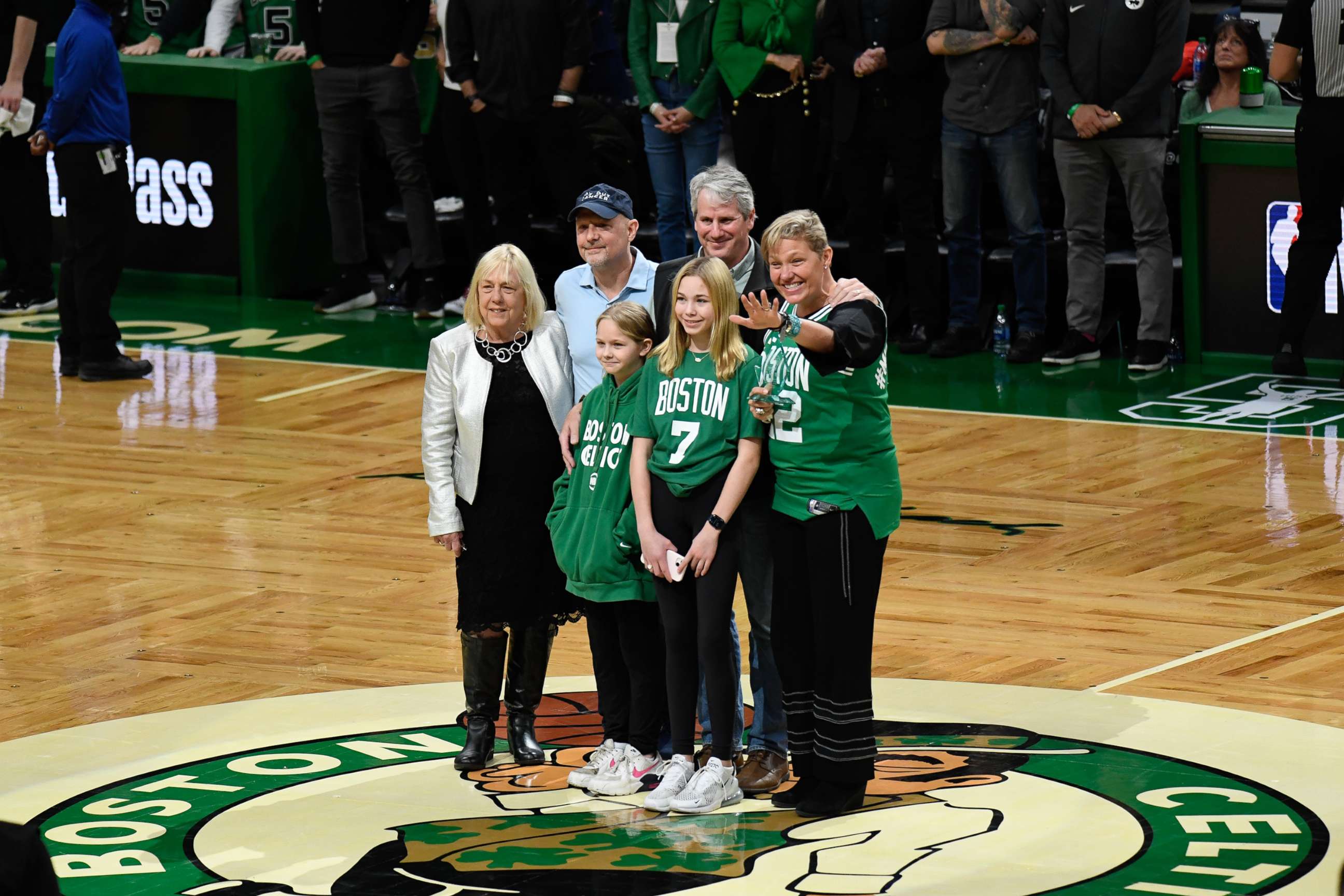
"Heather means everything to the Celtics organization. She's really our heart and soul. She's been here for years and years, she's everybody's favorite person. She brings passion and commitment and just love of life," Celtics co-owner Wyc Grousbeck told ABC News.
Walker is known within the organization as a gregarious and vivacious team player, executives said, and thus the young mother's diagnosis with glioblastoma was "shocking" and "devastating," to all who knew her.
"It was like being hit with an avalanche," Grousbeck said.
"She's such a force of nature — such a person with so much life that [her cancer diagnosis] just seemed incongruous with her," Celtics president Rich Gotham added.
Following her diagnosis, dozens of current and former players, including Shaquille O'Neal, Paul Pierce, and Jayson Tatum, sent Walker well-wishes.
Walker, her husband, and their daughters Sammy, 12, and Taylor, 10, are truly members of the Celtics "family," staff said. Given Walker's impact on the organization, the Celtics team made the decision to put their full support behind her.
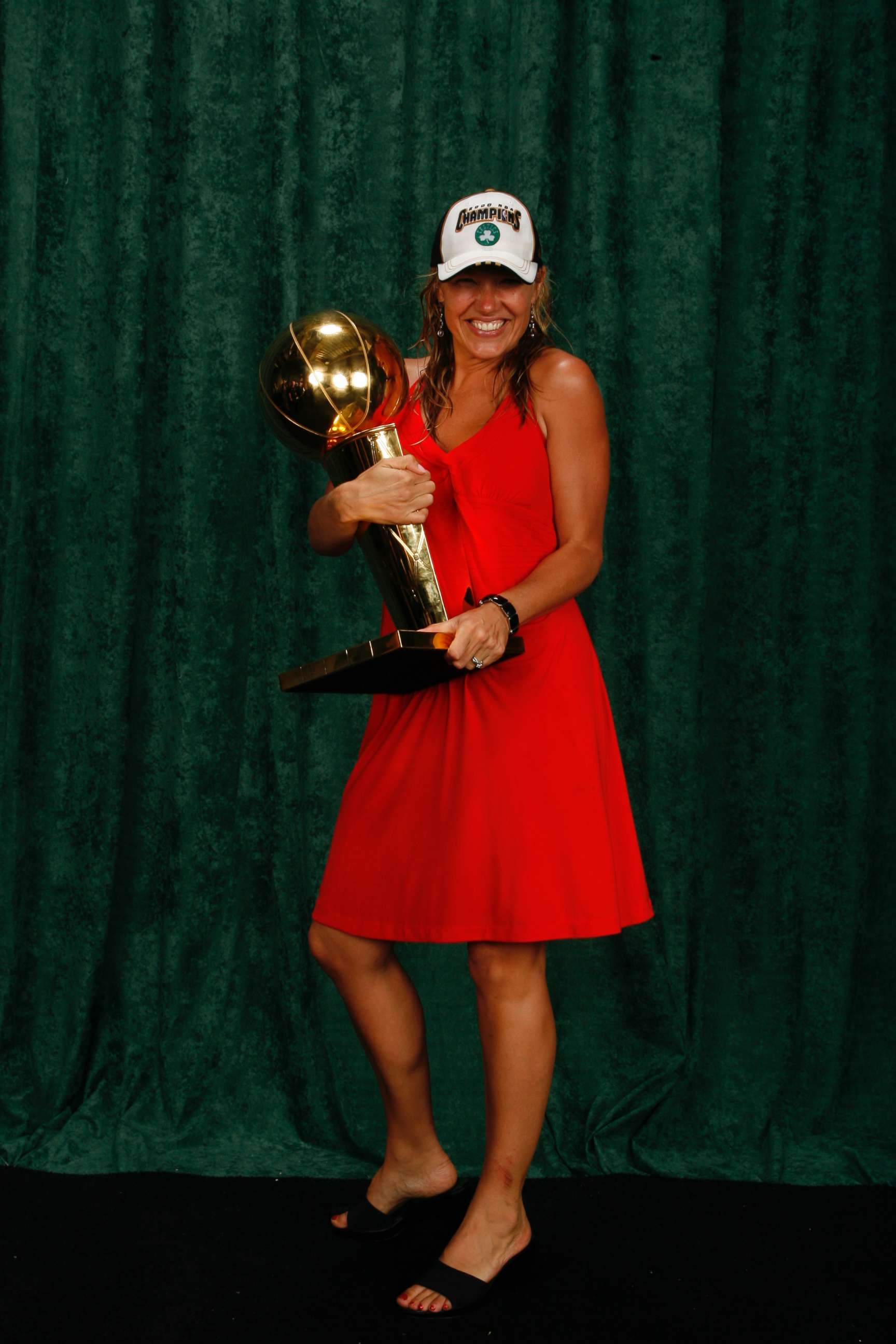
"We tried to mobilize everybody, the Celtics, the medical community," Bain Capital co-chair and Celtics co-owner Stephen Pagliuca said.
In March, the team gave Walker the "Hero Among Us" award, which honors individuals who have made an overwhelming impact on the lives of others.
"Heather could have, you know, just just just quietly dealt with the disease, but she went out there publicly," Pagliuca said. "She just defines what a hero is."
Move for Heather
Following her diagnosis and preliminary surgery, Walker decided she needed to take action to help raise awareness and funding for glioblastoma. She and her family soon created the "Move for Heather" initiative.
"It was during COVID, and so, we did [the] hashtag 'Move for Heather.' We are asking people to do something that moves you," Walker explained.
The "#Move4Heather" campaign encourages people to check things off their bucket list and be around the people they love. Similar to the ice bucket challenge, made famous by fellow Massachusetts native Pete Frates, who died of ALS in 2019, once people complete something off your list, they are asked to tag people to do the same, in an effort to spread the message.
"We had a friend of ours jump out of an airplane. My mom's best friend did a quilt, you know, and it's just basically anything that moves you," Walker said. "People are doing amazing things and it's just fun. It's so nice when I'm in the hospital bed, I can just go and I can see what everyone's doing and then they're supporting me."
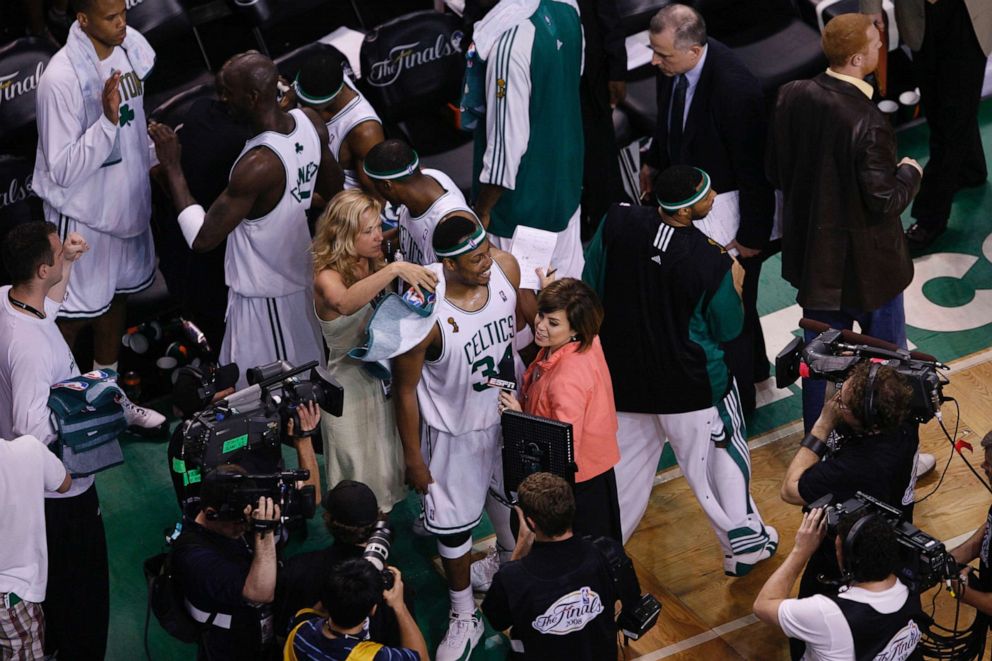
Thanks to the "Move for Heather" initiative, Walker has so far raised over $620,000 in support of glioblastoma research.
"We're doing what we can, you know, and we're going to keep on going and we're going to keep on fighting. We're not going to go anywhere," Walker added.
Finding a cure
Despite her treatment over the last year, and her participation in a clinical trial, Walker will have to have surgery again.
She said she feels deeply frustrated that there have not yet been more significant steps in the global fight against cancer.
"I'm so frustrated that cancer is still around…. There are incredible opportunities for us, but we need help," Walker said. "I've got to go to [get] another surgery. Like, am I going to be able to talk after this? I don't know. But it's not fair. It's just not fair. Just help us. Help us. It's just awful."
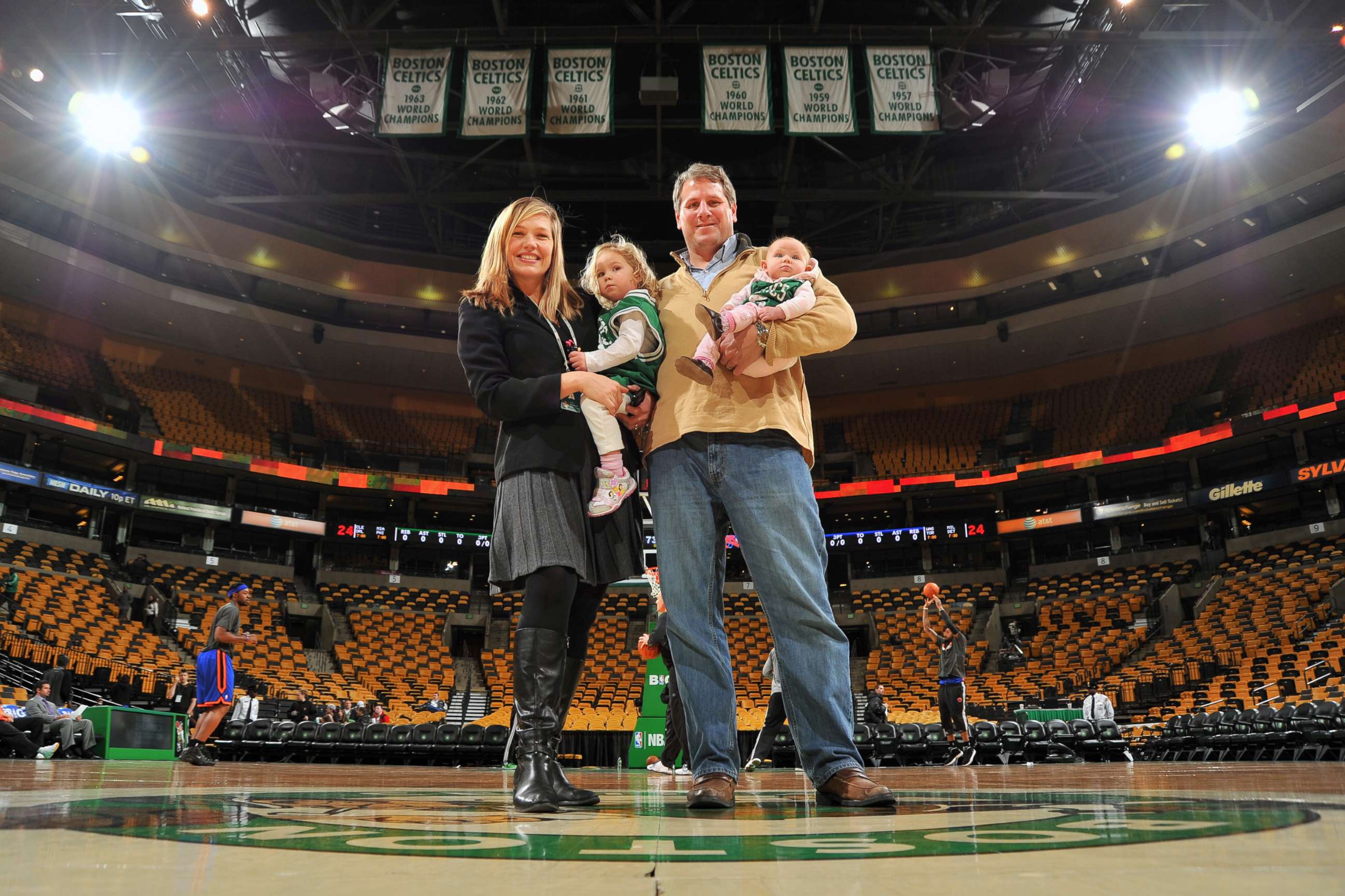
Walker and her family are no stranger to the crushing impact of cancer, as she lost her father to leukemia when she was just 17, and her mother faced her own battle with breast cancer.
"My dad didn't have a chance to live -- I do, and I just have to keep on going and keep on chugging away and be strong and be positive," Walker said.
"I was meant to help people cure cancer."
Walker and her husband are now using their platform to urge scientists and politicians to find ways of cutting through the "red tape" that makes accessing treatments and finding cures more difficult.
Walker's husband Stephen said it was time for the world to pool its brightest minds and best resources -- the way leaders had for other diseases in the past -- to try to figure out cures for cancer.
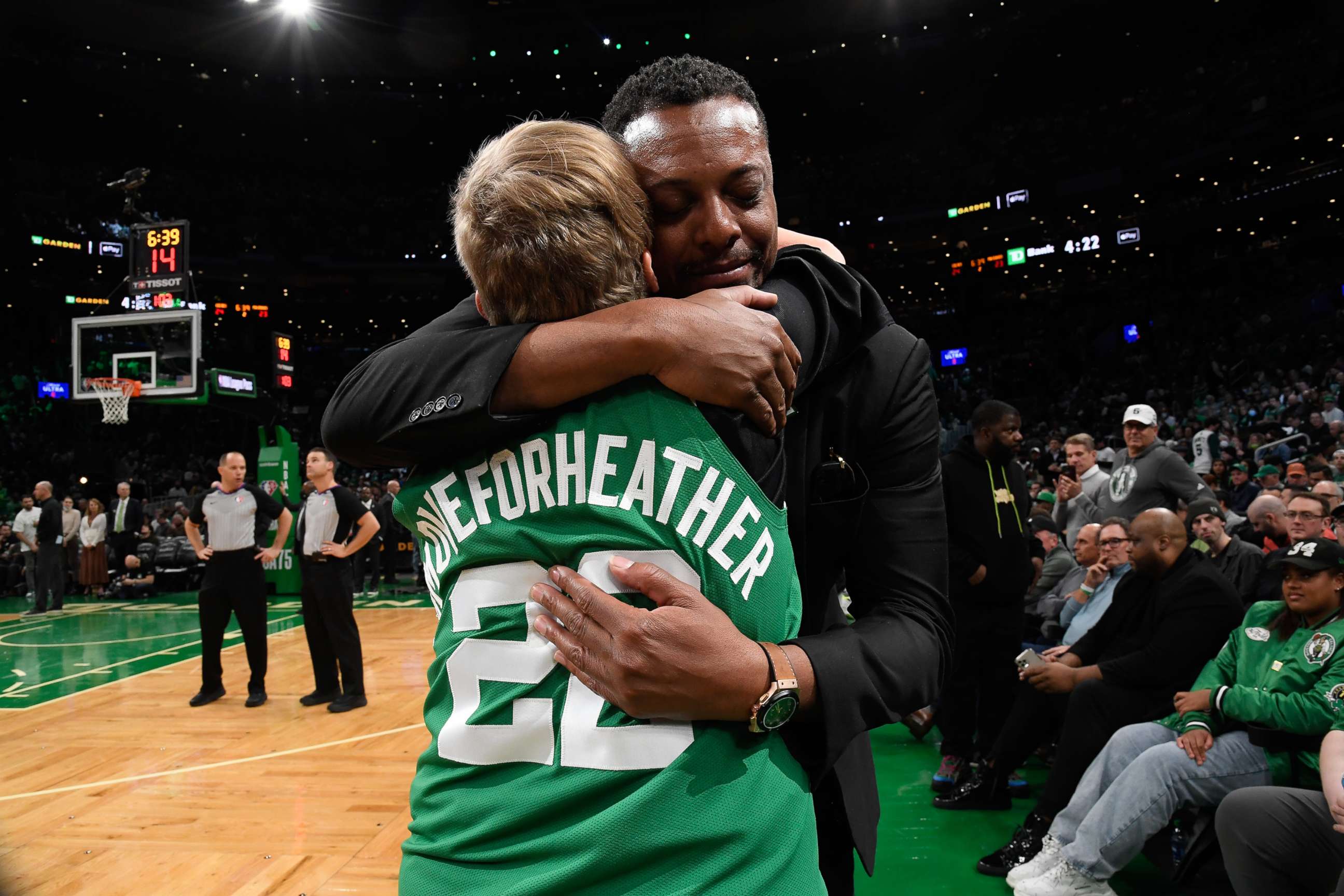
Despite continued adversity, Walker remains unfailingly positive and steadfast in her hope that someday soon, not only will she be back on the court celebrating an NBA championship with the Celtics, but there will be a cure for glioblastoma and all forms of cancer.
"There is hope. Just stay positive, keep on moving. We're going to get through cancer. We just got to stay strong and keep on moving forward," Walker said. "We're going to get there and we're going to be cancer free. I can't wait for that day."

